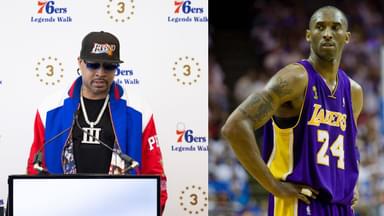When Kobe Bryant announced his retirement with “Dear Basketball,” it was clear he had made the decision a long, long time ago. Through the film’s script, the messaging laid bare Kobe’s exhaustion with the constant drive of basketball. From the 4 a.m. workouts leading to five-a-day schedules to the injuries that plagued Bryant’s late year, he had found it all draining. It was time to say goodbye.
Advertisement
When Kobe did make his exit — to the tune of a 60-point final game — it was obvious that performance would leave fans wishing for more. Still, Bryant never questioned his decision to leave the game when he did.
As part of an interview with Emmy Award-winning sportscaster Jim Gray for the Milken Institute, Bryant spoke at length about the regrets he did have and the ones he didn’t.
“I consider myself very lucky,” started Bryant, “because I didn’t stop playing the game because I didn’t feel like I could play at a certain level anymore. I stopped playing because I just didn’t want to do it anymore … I felt like I wanted to move on to something else, and my passion and my focus started shifting towards what comes next …”
Those outside ambitions that Kobe alluded to would never fully be realized, but we got a hint of what they could be from 2016-2020.
The mythologizing of the NBA
It was in Kobe Bryant’s nickname that we can see his love for storytelling. It was a title he gave himself — the Black Mamba — named after a poisonous snake that would strike silently and quickly, with both precision and strength concealed behind an unassuming face.
Bryant’s passion and devotion continued to be seen in his aforementioned short film “Dear Basketball.” While told from Kobe’s perspective, it was a universal story and experience that touched anyone who has ever shot a ball of socks into their hamper. Across generations and households, it spoke to people. It mattered.
In his own words, Kobe wanted to be known “as a person that was able to create stories that inspired their children and families to bond together. And for the children to dream, then have the initiative to wake up every morning and do all they can to help that dream become a reality, you know, that would be really, really cool.”
Bryant was trying to change his status as an icon and idol for millions of kids to someone who fostered those same kids to find their stories.




